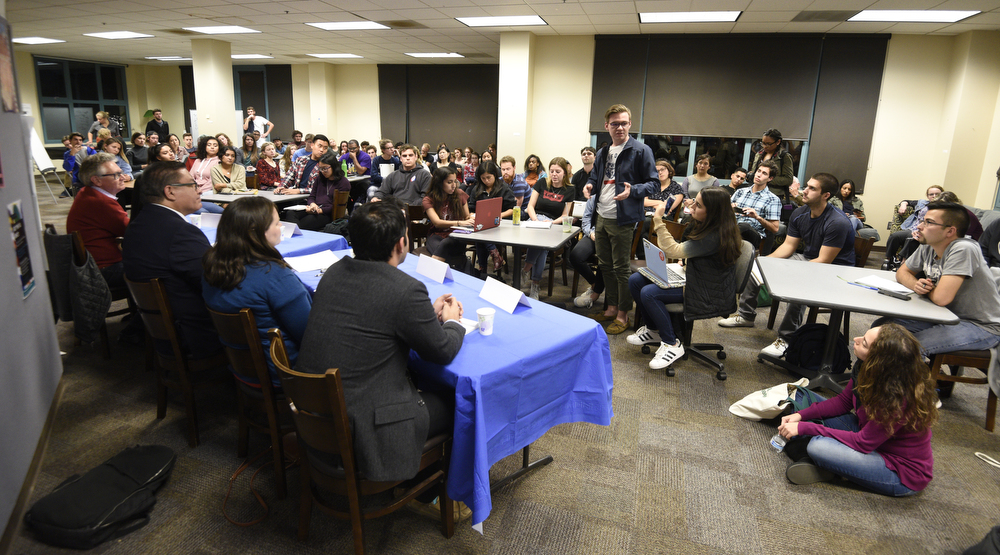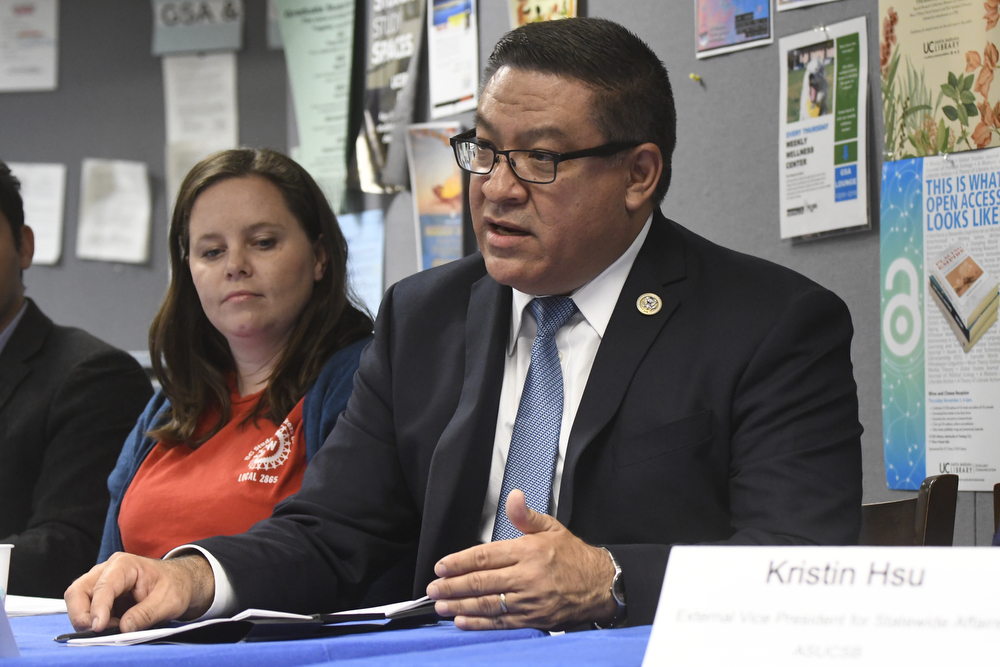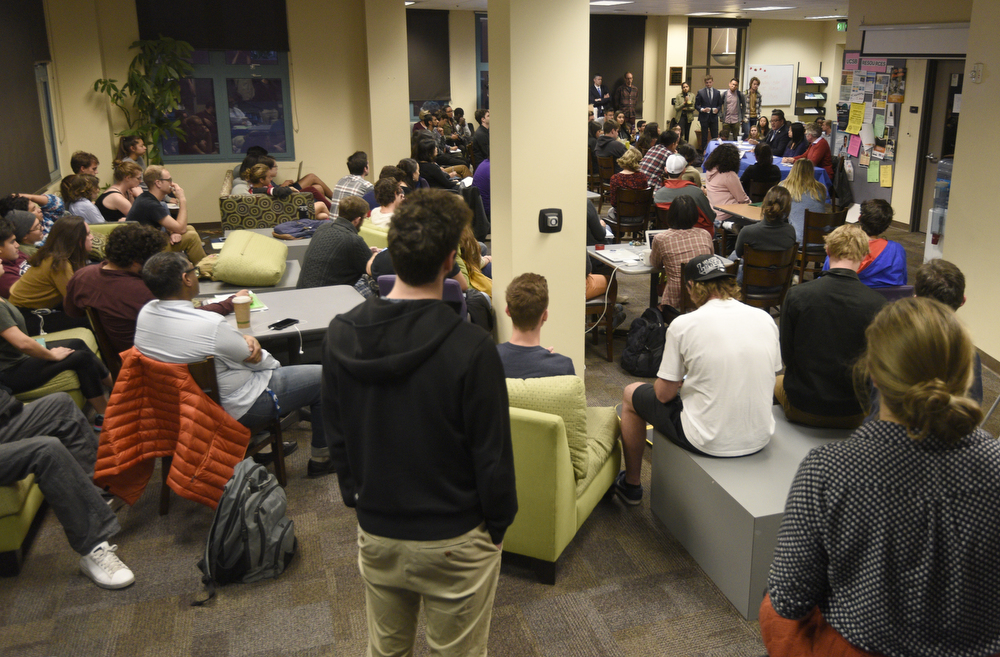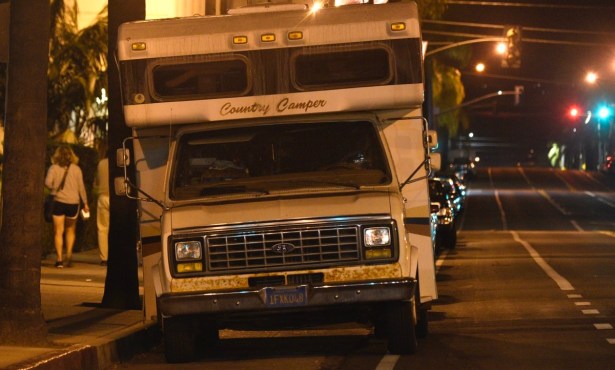Santa Barbara and UCSB Leaders Say the GOP Tax Bill Attacks Higher Education
Legislation Could Impact Student Loan Interest Payments, Tax Exemptions on Tuition Waivers

The Republican tax bill was on the minds of nearly a hundred students and staff at UC Santa Barbara on Monday, as they turned out in droves to listen to a panel of regional and campus leaders, including Congressman Salud Carbajal, talk about the pending legislation.
Undergraduate and graduate students are most concerned about the bill’s plans to rid deductions for student loan interest payments and tax exemptions on tuition waivers. Graduate students typically receive funding from a mix of fellowships, teaching appointments, and research stipends to pay for tuition. If they teach, their universities typically waive their tuition.
In the Graduate Student Association Lounge, an overflowing crowd peppered Carbajal with questions about how the bill, which is up for a vote this week in the U.S. Senate, was created and what can be done to reform it. Carbajal, who has said in the past that bipartisanship is key to reform, told listeners Monday that the tax bill was created in private and “sprung” on Congress without following regular protocols.

The $1.5 trillion Tax Cuts and Jobs Act, which would affect taxes filed for the 2018 fiscal year, would condense existing tax brackets into four new ones and introduce a permanent tax cut for corporations. The bill passed the U.S. House of Representatives with a 225-207 vote earlier this month. The Senate version does not include the repeal of tax exemptions for tuition waivers. However, if the bill passes the Senate, both sides of Congress will need to agree on a final version by the end of this year — which could include cutting the tax exemptions.
UC administrators, faculty, and students have all condemned the proposed changes. On Monday morning, the UC Office of the President, along with two student representatives, released a statement regarding the tax proposal: “Tax reform should not be borne on the backs of our hardworking graduate students.”
Meg Undén, a graduate student and chair of UAW Local 2865, a union for student workers, expressed concern that the changes in taxes for students would limit the diversity and number of students entering academia. “We are what makes the UC possible,” said Undén. “Attacking graduate students is a way to prevent higher ed from continuing on and growing because we’re the next generation of faculty.”
During the 2016-17 academic year, UCSB had 2,772 graduate students. Bruce Kendall, the associate dean for the graduate division at UCSB, said that under the new tax plan, graduate students paying in-state tuition could expect to see their taxes go up by $1,900. Out-of-state students, who make up roughly 34 percent of graduate students on campus, could pay up to an extra $4,000 a year in taxes.

Carbajal said the avenues going forward are to continue to advocate, speak up, and if possible, filibuster during the vote. The panel encouraged students to vote in local and state elections and get involved with local organizing groups, such as the union and at the undergraduate level, Associated Students.
“We talk about lack of college affordability and accessibility all the time, whether it’s financial aid, whether it’s tuition hikes, both at the state and federal level,” said Kristin Hsu, an undergraduate student leader in Associated Students. “So it’s often like we’re fighting two, three, four, five, a hundred battles to make college affordable.”
Students repeatedly asked Carbajal for his views on free tuition, a growing movement on college campuses nationwide as higher education administrators vote on tuition hikes. Earlier this year, the UC Board of Regents announced a 2.5 percent tuition increase.
Carbajal avoided giving a direct answer, stating that it was a complicated issue. He instead said that he supported increasing financial aid in response to higher fees. In May, Carbajal sponsored the Middle Class CHANCE Act, which increases the award amount and extends eligibility for the Federal Pell Grant. He has also co-sponsored a bill to refinance federal student loans.



